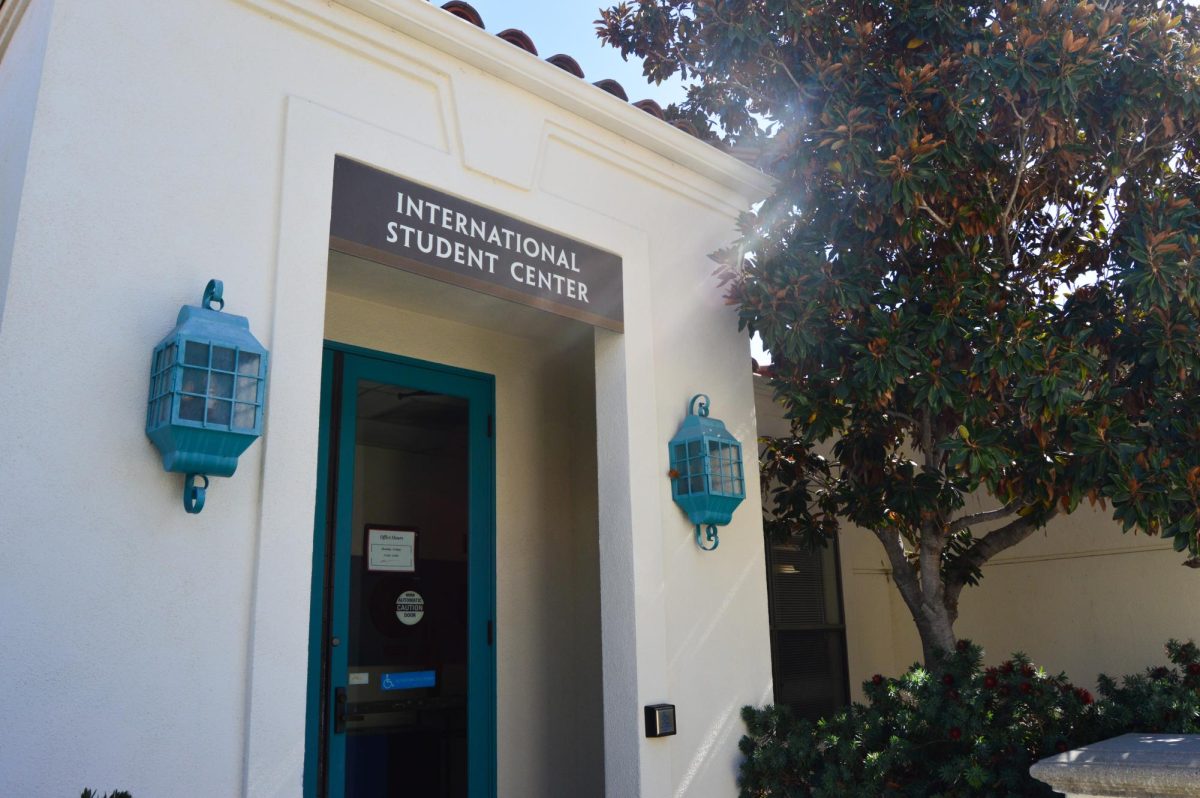As of 2016, San Diego State University had 33,778 students enrolled, and of those, almost 15 percent were part of Greek organizations on campus. Although that may not seem like much, it’s the largest institution on SDSU’s campus and arguably has the biggest impact. Greek life might be foreign to anyone not a part of it, but for those who are, it quickly becomes a big part of their lives and completely transforms their college experience.
It seems as if a negative stigma always seems to take hold in the minds of those who don’t know much about it. Some say Greeks “buy their friends,” others believe it’s all about hazing and partying — opinions fueled by movies.
“Everything I know about Greek life came from watching ‘Legally Blonde’ and the show ‘Greek,’” economics junior Kathrine Pierce said. “I’d definitely say that my perspective is a bit skewed. I even have a few friends who are (in Greek life), but I never thought to ask them what it’s really all about.”
In reality, Greek life has more to it than meets the eye. Freshmen and transfer students arrive on campus with a lot to learn, and participation in a social structure — such as that of a Greek organization — provides students with useful knowledge that will affect their lives after college.
Greek organizations aren’t the homogenous organizations that they used to be. The bonds created through brother and sisterhood are not based on race, religion, sexuality or background. Diversity is not only encouraged, but also discussed freely. This creates a safe space for members, while conveying the importance of acceptance.
“I learned how to feel comfortable in my own skin through my fraternity,” business sophomore Justin Klyzeck said. “My brothers aren’t there to judge me, they’re there to support me. And that’s what matters most.”
Members are able to find their strengths and contribute to the organization by serving in various leadership positions. Sororities and fraternities elect presidents, vice presidents, treasurers, social chairs and other representatives. Taking on one of these positions gives members the opportunity to gain leadership skills that carry into the professional world after college.
Most Greek chapters are national organizations. Once someone becomes a member, they are connected to every other member across the country — student and alumni alike.
“I got my job at NBC through an alumni of my sorority,” journalism graduate Chelsea Baer said. “I reached out to her and she was more than happy to meet me for coffee. It was incredible to see that sisterhood does extend beyond just my chapter.”
Members are held to a higher academic standard than the university average to remain in their chapters, and having a strong support system that shares in one another’s goals makes it easier to stay on track academically. Each chapter has their own way of pairing underclassmen with older members who can mentor and advise them.
Greek chapters also hold their members to a higher standard when it comes to hazing — which is illegal. Organizations are extremely careful and follow anti-hazing rules. While horror stories of cringe-worthy hazing scenarios still circulate, most are just rumors. And while there are always exceptions, hazing has been steadily decreasing in the years since states began creating anti-hazing laws.
The most important aspect of Greek life is that of service and philanthropy. Involvement varies between organizations, but Greeks are often committed to making a difference. Some chapters raise tens of thousands of dollars every year for charity, instilling the values of community service in each member of their chapter.
Although there is a lot of good associated with Greek life, nothing is perfect. Each fall, more than 2,000 students go through recruitment. Unfortunately, there aren’t nearly enough spots available in chapters, so a number of people are left behind. This, along with the taxing recruitment process, leaves many feeling stressed and anxious to go Greek.
Judgments based on first impressions and appearances tend to happen during recruitment, which can lead to disappointment if someone is rejected by a house they really liked or if they join a chapter that ultimately isn’t a good fit for them.
“Formal recruitment was daunting,” undeclared freshman Lisa Brown said. “You would see the girls from the sorority you got rejected from around school and wonder what you did to not get asked back – it gets to you.”
Greek life can severely cut into students’ time and money too. The price of membership can be one of the largest expenses students deal with. With money going towards everything from national and local dues to t-shirts and formals, costs add up.
Joining an organization also might not leave time for much else. Every chapter’s commitment expectation varies, but members are often busy with various events. When there are socials, sister or brotherhood events, as well as community service and chapter meetings to go to every week, members may end up overwhelmed.
“Joining a fraternity really took a toll on me at first,” engineering junior Eric Chang said. “Pledging was by far the worst part, but as soon as I figured out how to manage my time it got easier. You’ve really got to stay on top of yourself to make it work though.”
At the end of the day, there will still be people who immediately think negatively of anyone they see with letters on their jacket or Greek stickers on their laptop. At SDSU, it’s even perceived as an “us vs. them” mentality at times. People who may have had a bad experience, people who simply never took the time to learn – whatever the reason may be – there are certain stereotypes that come with being Greek. It may not be fair, but it will happen regardless.
Nine million college students nationwide are part of Greek organizations, and they have made a positive impact on college campuses and communities throughout. The decision to go Greek certainly has plenty of advantages and disadvantages, and though Greek life isn’t for everyone, it certainly means a lot to its members.






